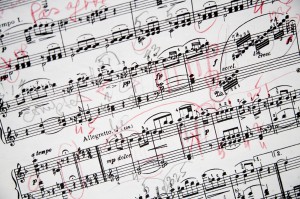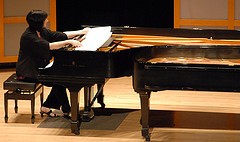How Often Should I Practice the Piano?

When and how often should you practice the piano?
Piano practice is key to making swift progress, and your teacher will expect you to invest time honing your skills. Without practice, you’ll show up to each lesson showing next to no improvement, and that will be frustrating for both of you.
Many beginners throw themselves into practice, but this can cause burnout. What should you do to ensure practising is effective and fun, and how long should you practice for each day?
Duration
The truth is, most pianists don’t practice every day. Your teacher doesn’t expect you to give up your time after work to slave over the sheet music each night. Practising needs to fit in around your routine as much as possible.
We usually recommend 15 minutes every couple of days when you start out. It doesn’t sound like a lot, but the pieces you’re learning are likely to be short, and 15 minutes will be enough time to run through them and practice your scales.
As you learn longer pieces, and more scales, you will find yourself practicing a little longer at each session.
When to Practice
Many pianists are limited to practising after work or on weekends, which is perfectly fine. But don’t cram all of your practice into one day. You need to build up muscle memory, and you also need to give yourself time to mentally process what you’re learning.
Practice when you’re relaxed, not too tired and feeling positive, and try to make it a private experience where you can focus on the task at hand. If your practising disturbs other family members, a silent piano might be a sensible investment.
Whatever your schedule, don’t push yourself too hard. Rest time gives your arms, hands and eyes change to recuperate.

Piano practice is essential whenever possible
Feeling Lazy?
If you’re not practising as often as you should be, think about why you’ve lost your drive:
- Is the piece too difficult, or too easy?
- Is your piano stool too low, or too high?
- Do you enjoy the style of music, or would you prefer a new direction?
- Are you getting along with your teacher?
- Is the piano in an awkward spot, or a cold room that you prefer not to use?
- Are you getting pain in your hands when you play?
- Are you trying to practice for more than half an hour at a time?
It takes a month to get into a new habit. If you forget to practice, set a reminder on your phone and dedicate 10 minutes or so each time. Schedule practice between your favourite soaps or do a couple of runs through a piece after your evening meal. This all helps to built a routine.
If you’re finding a set piece of music difficult, warm up with a piece you know well before you tackle the new one. This can help to build your confidence and get you in the mood to learn.
Support When Learning
If you want to learn the piano consistently, lessons are a great investment. We’d be happy to put you in touch with a teacher who can bring out the best in you. Drop us a line and ask us about our beginner piano lessons.
Image credit: Ataelw via Flickr

